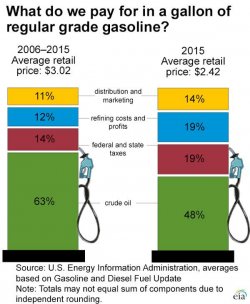- Apr 5, 2010
- 80,450
- 32,433
- 2,300
What are the regulations that prevent generics? Are you talking about patent rights?I'm all for cutting the fat... Problem I see is nobody talks about specifics, the most of the conversation that I hear is very partisan generalities, blaming "regulations" or liberals for inflated prices and lack of jobs... It's a cop out unless we can move into specifics, especially in our media, legislature and national conversationsBecause the common arguement from the right is to cut regulations. I'm all for some cuts and many modifications but I also understand their purpose which is to protect the pubic. Their effectiveness to do so should absolutely be examined and tweakedWho said about removing all regulation? Why does everyone just jump to that when someone complains about over-regulation?
Yes, cut regulations, not eliminate them.
And while the purpose of regulations was originally to protect the public, they have been co-opted to push agendas and protect certain industries, like the fact that in some cities and states it takes more hours to learn how to weave hair than it does to be certified as an architect.
If these idiots can come up with pages and pages of regulations, they can figure out a way to streamline the process in this situation, and other situations where generics are involved.
No, the patents have already expired on these things. The issue is that getting generic approval takes 30-48 months, and this is for drugs that have been proven effective, the only thing to be determined is if they are made the same way and have the same effect as the brand name drugs.
http://www.raps.org/Regulatory-Focu...n-Backlog-Will-be-Eliminated-Before-GDUFA-II/


